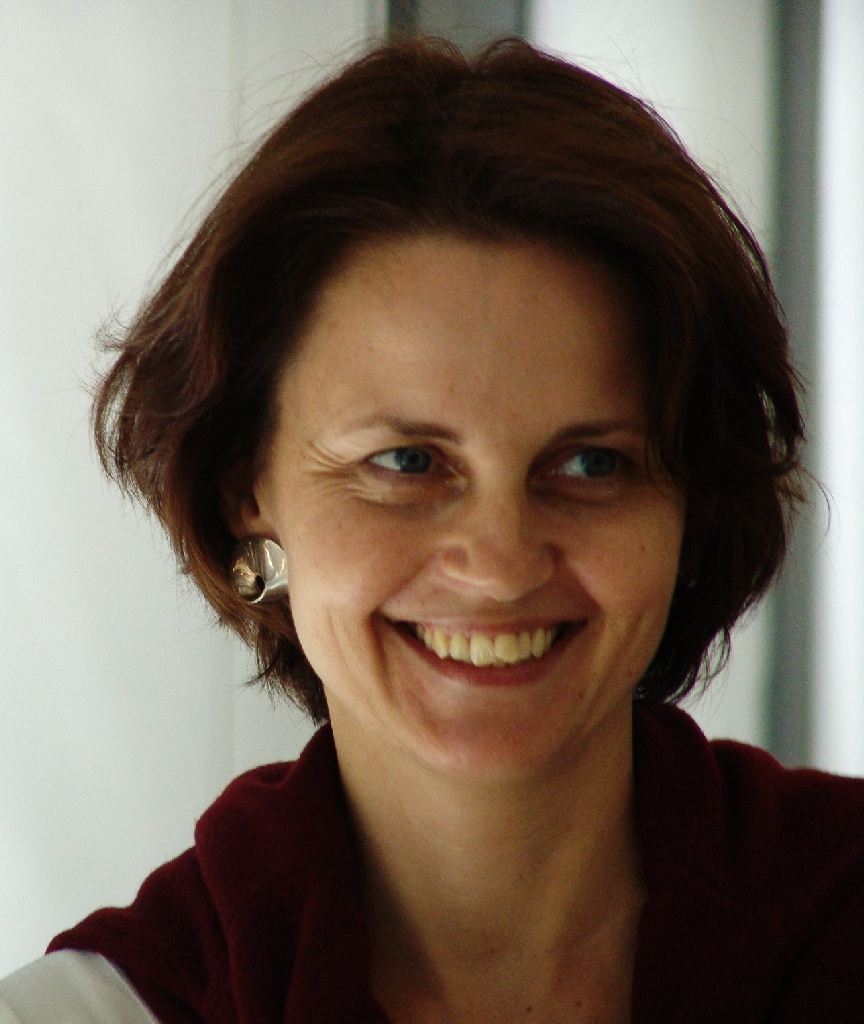SMEs are the backbone of Europe’s economy, and substantially contribute to growth and job creation, due to their innovative role and growth potential. About 23 million SMEs are generating € 3.9 trillion in value added and employ 90 million people. Although their participation in the Framework Programmes (FPs) has increased during the past years, SMEs still need support for getting involved in projects that will bring their research to commercially exploitable innovative products and services and will therefore contribute to sustainable socio-economic value for European citizens.
A series of key findings of various impact assessments revealed a strong lack of strategic approaches of SMEs. Less than 50% of SMEs use publicly funded applied research projects strategically and only about 22% of SMEs participating in EU research programmes are strategic innovators. This is in line with experiences gained in dedicated strategy trainings and a mentoring and coaching support approach developed in the EU-funded project Fit for Health 2.0 (www.fitforhealth.eu).
Horizon 2020 is the first Framework Programme (FP), covering both, basic research and close-to-market innovation. With a total budget of about € 77 billion, 20% are awarded under Horizon 2020 Societal Challenges (SCs) and Leadership in Enabling and Industrial Technologies (LEITs) to SMEs. Horizon 2020 offers SMEs more attractive and less complex funding rates amounting up to 100% of their costs. Possibilities for SMEs are ranging from projects that are R&D driven with dedicated pre-defined topics for collaborative research projects to projects for high-tech, research intensive SMEs to projects that have a clear focus on the market opportunity for business innovation motivated SMEs. The participation of SMEs is possible in all three pillars of Horizon 2020. In Pillar 1 “Excellent Science” mobility and exchange of staff can be of interest for SMEs through the “Marie Sklodowska-Curie actions”, as well as participation in the activity “Future and Emerging Technologies”. SMEs are encouraged to participate in collaborative projects in Pillar 2 “Industrial Leadership” and Pillar 3 “Societal Challenges”, as well as in the SME instrument, which is embedded in both Pillar 2 and 3. Access to risk finance helps to overcome the gap that is identified before getting research results to the market.
Looking at key findings out of the Horizon 2020 interim evaluation, an unbowed interest of SMEs in participating in Framework Programmes is seen, and a strong EU-added value is offered through unique collaboration opportunities, competition and access to new knowledge. More private sector participations are seen in comparison to FP7, and 70% of SMEs aim at new-to-market innovations, generating jobs, growth and investments.
The European Innovation Council (EIC) as new pilot programme
The European Innovation Council (EIC) has been established on an initiative of Commissioner Carlos Moedas: “Europe has excellent science but we lack disruptive market creating innovation. This is what is needed to turn our best ideas into new jobs, businesses and opportunities“. This new pilot programme responds to the fact that though many start-ups are getting up in Europe, too few are succeeding in scaling up and offering high-skilled jobs to strenghten Europe’s economy. Thus, improved conditions for rapid scale-up of highly innovative companies were required, considering the substantial effort to foster breakthrough innovation as found in the Horizon 2020 mid-term evaluation.
The EIC will start as a pilot for the years 2018-2020 and should play a significant role in the upcoming Framework Programme, starting in 2021. It brings together several innovation support schemes like the SME instrument, Fast Track to Innovation, FET Open and Horizon Prices. With an overall budget of € 2.7 billion the pilot offers support for innovative entrepreneurs with potential to scale up rapidly on European and global levels without thematic restrictions. It addresses ideas that radically differ from existing products or services and that require significant investment to get to the market.
The SME instrument has already been part of Horizon 2020 since the beginning, supporting SMEs in bringing highly innovative new products, services or business models to the market, focussing on ground-breaking concepts, boosting the growth of companies. For-profit SMEs from any sector and established in an EU Member State or a Horizon 2020 associated country can apply, and single companies can benefit from funding. Briefly, the SME instrument comprises 3 phases, starting with a concept and feasibility assessment in phase 1, followed by a „concept to market“ phase with innovation activities to develop a market-ready product or service. Applications can be done for either phase 1 or phase 2 directly. Phase 3 is a commercialisation phase, without funding but offering support like partnering, networking and links to investors. Both, phase 1 and 2 of successful funded projects are accompanied by business coaching. Most important alterations of this support scheme for the years 2018-2020 are a bottom-up approach, a minimum of Technology Readiness Level (TRL) 6 for phase 2 projects and interviews for selecting best phase 2 projects for funding.
Fast Track to Innovation (FTI) has been part of Horizon 2020 as pilot measure for the years 2014 -2016 and after successful evaluation it will be part of the EIC. As a bottom up approach close to market innovations are funded. FTI projects require consortia, with 3 to 5 partners (established in EU Member States or Horizon 2020 associated countries). Participation of industry (private-for-profit organisations) is mandatory. Consortia with complementary backgrounds, expertise and skills and cross-sectoral cooperations comprising different disciplines are addressed, reaching trans-national value chains and European / global markets.
FET Open supports early stage science for high-risk, radically new future technologies, challenging current paradigms. The bottom-up programme addresses interdisciplinary consortia with at least 3 partners, and all types of organisations are addressed like universities, research centers and high-tech, research intensive industry. Essential characteristics of FET Open projects are defined by so called FET gatekeepers, like radical vision, breakthrough technological target and ambitious, interdisciplinary research.
EIC Horizon prices will be awarded to applicants who will most effectively meet defined challenges with regards to societal problems to be addressed. Innovators are asked for breakthrough solutions, solving challenges by 2021 at the latest, and specific characteristics are defined in so called rules of contest.
Recommendations and outlook for next Framework Programme
Findings in the Horizon 2020 interim evalution together with personal observations and out of the feedback from SMEs gathered in Fit for Health 2.0 show that competition in FPs is very high and success rates in Horizon 2020 are lower than in FP7. Thus, SMEs are advised to using FPs as long term strategy and not as ad-hoc funding opportunity. Megatrends like the ones identified in the Bohemia report scenarios and recommendations from the Lamy high-level group might contribute to the basis of FP9, expected to start in 2021. Europe’s competitiveness is increaslingly determined by investment and performance in research, innovation and education. Getting prepared for upcoming challenges requires to work on our innovation deficit in comparison to global trading partners and to address current problems now.
Sources:
Impact assessments: https://www.researchgate.net/publication/257736360_Profiles_motivations_and_expectations_of_participants_to_EC_funded_research_in_Health_2002-2010_A_statistical_analysis
Horizon 2020 interim evaluation: https://ec.europa.eu/research/evaluations/index_en.cfm?pg=h2020evaluation
EIC-pilot: https://ec.europa.eu/programmes/horizon2020/sites/horizon2020/files/17._eicpilot_forprepublication.pdf
Report from BOHEMIA project: file:///C:/Users/HAI/Downloads/KI0417245ENN.en.pdf
Lamy Report: https://ec.europa.eu/research/evaluations/pdf/archive/other_reports_studies_and_documents/hlg_2017_report.pdf#view=fit&pagemode=none
 Ines Haberl is working for the Austrian Research Promotion Agency (FFG) as National Contact Point (NCP) for SMEs since 2006 and as coordinator of the EU-project “Fit for Health 2.0” www.fitforhealth.eu
Ines Haberl is working for the Austrian Research Promotion Agency (FFG) as National Contact Point (NCP) for SMEs since 2006 and as coordinator of the EU-project “Fit for Health 2.0” www.fitforhealth.eu
As SME-NCP she assists Austrian companies for their participation in Horizon 2020 projects, in particular for the SME instrument and for Fast Track to Innovation. At FFG she works as trainer of the FFG-academy, conducting trainings for applicants and project implementation. In Fit for Health 2.0 she offered mentoring and coaching for European Life Sciences SMEs.
Ines is pharmacist by training and received a Ph.D. from the University of Vienna in Natural Sciences, worked as a researcher at the Medical University of Vienna, where she completed 2 post-doctoral trainings at the Departments of Surgery and of Oncology. She has prior experience as coordinator of several coordination and support actions under FP6 and FP7.



